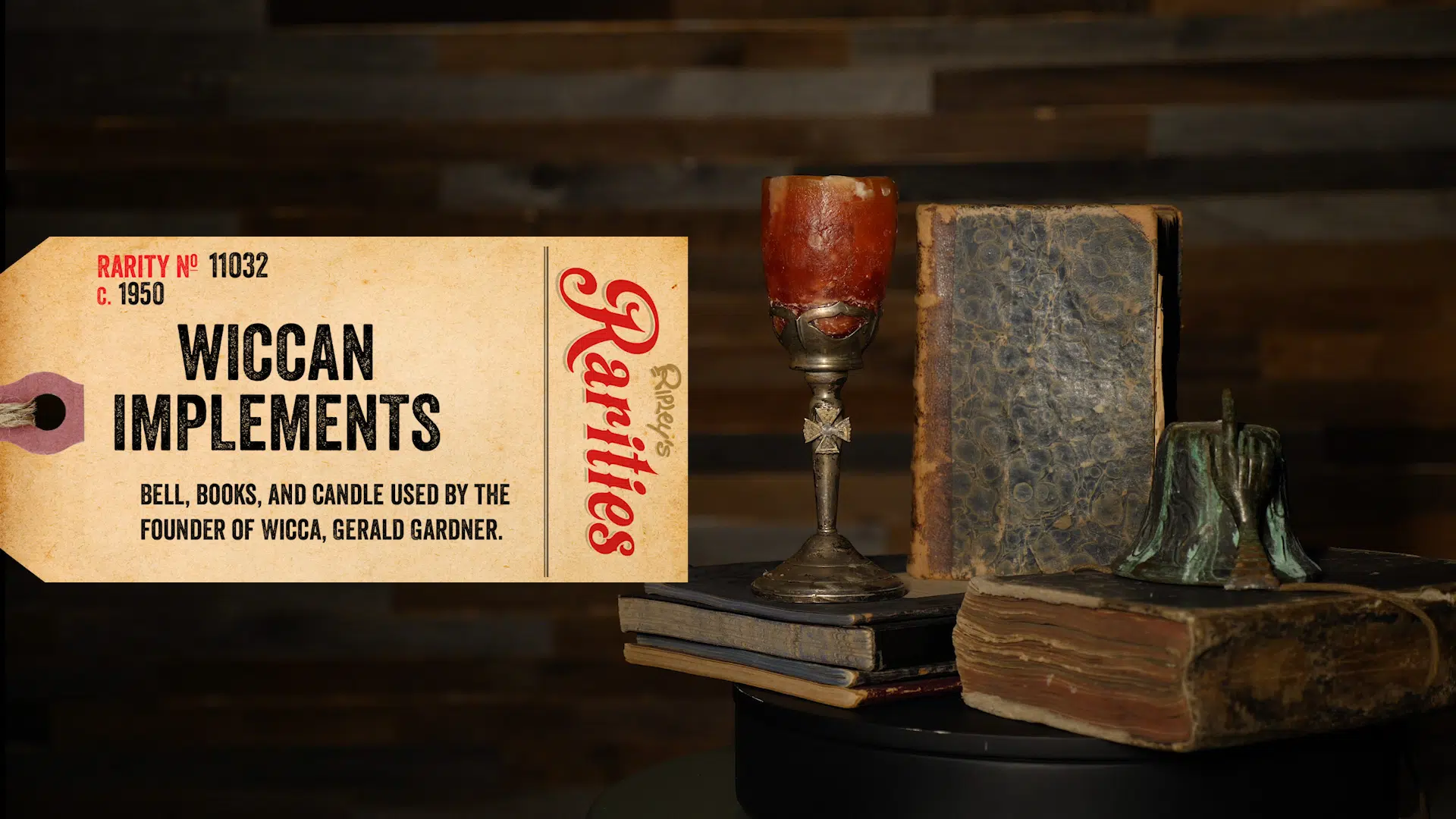The Once Warlock-Owned Wiccan Implements Of The Ripley Collection
Featured in Ripley's Believe It or Not!

Wiccan Bell, Books, And Candle
It may come as a surprise to many, but the occult religion of Wicca started in 1953. It may copy the practices of millennia-old Druidic rituals or the primordial ceremonies of witches, but it was a self-proclaimed British Warlock who got the whole thing started.


